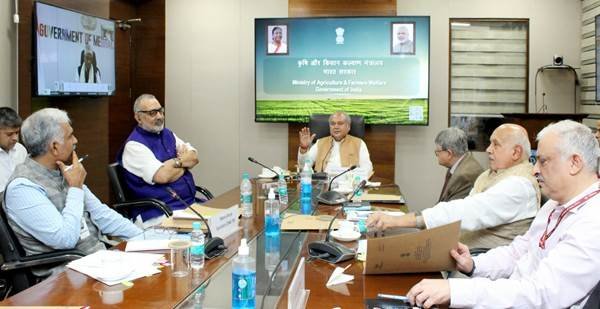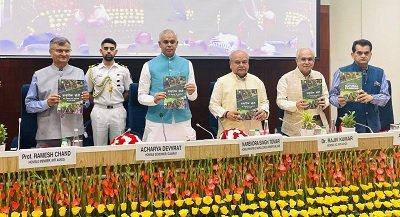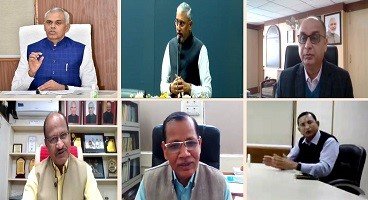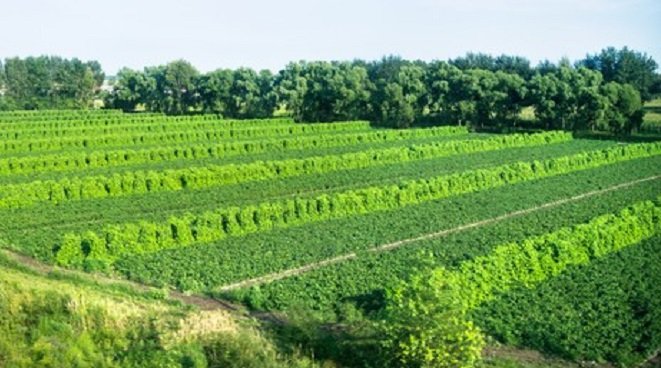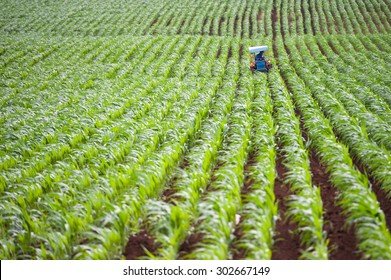The UP government intends to invest Rs 2,500 crore in natural farming
The government of Uttar Pradesh intends to spend more than Rs 2,500 crore to encourage natural farming in 282 blocks and 2,144 gram panchayats with the goal of enlisting more than 2.5 lakh farmers
With investments totaling more than Rs 2,500 crore over the next two years, the Uttar Pradesh government announced Monday that it intends to convert more than 2.5 lakh farmers to natural farming across 282 blocks and 2,144 gram panchayats.
The alarming rise of heavy metals in agricultural soil has arisen as a major concern for the farming sector, the state government said in a statement.
According to a global assessment, 1.4 billion people are impacted by the approximately 15 per cent of the world’s arable land that is contaminated with harmful heavy metals.
In several areas, levels of dangerous metals like lead, arsenic, cadmium, cobalt, chromium, copper, and nickel have risen to dangerous levels.
Biologists from the University of York claimed that these metals provide long-term health concerns to people, animals, and aquatic life since they enter the food chain through soil, water, and air.
“The central and Uttar Pradesh governments, led by Prime Minister Narendra Modi and Chief Minister Yogi Adityanath, are encouraging organic and natural farming in light of the impending threat. In addition to being chemical-free, these methods are environmentally benign, sustainable, and climate-resilient.
“The Yogi Adityanath government intends to implement natural farming for more than 2.5 lakh farmers in 2,144 gram panchayats and 282 blocks. With an expected expenditure of Rs 2,500 crore over the next two years, the program will be implemented through 50-hectare clusters, according to the government.
Natural farming is water-, land-, and people-friendly, according to the government.
According to the statement, natural farming is currently being extended to both banks of the Ganga’s tributaries after being successfully implemented in Bundelkhand and along its coastal areas.
It stated that ‘Krishi Sakhis’ will be employed at a monthly stipend of Rs 5,000 in order to increase awareness and offer grassroots support.
These women farmers would receive training from Krishi Vigyan Kendras (KVKs) experts in their respective districts. It further stated that two Bio-Input Research Centers (BRCs) will be set up in each district to assist in this endeavor.
A special program centered on cow-based natural farming is being implemented in the seven districts of Bundelkhand: Jhansi, Lalitpur, Jalaun, Hamirpur, Mahoba, Banda, and Chitrakoot.
Using cow dung and urine, farmers are being trained to make organic inputs like Jeevamrit, Beejamrit, and Ghanjeevamrit. In the fields, these bio-formulations are employed as natural insecticides and fertilizers.
21,934 farmers have benefited from the 470 clusters that have been established thus far. According to the government, farmers who cultivate up to two hectares will receive financial help as part of a 50-hectare cluster being built in each gram panchayat.
Under this goal, a total of 2,535 Farmers’ Field School sessions were held. It further stated that the government has set up Rs 13.16 crore for its initial and subsequent stages.
The government of Uttar Pradesh intends to



